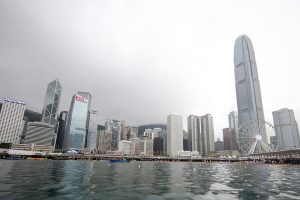By Beatriz Marie D. Cruz, Reporter
HONG KONG is touting its favorable tax regime and market access to attract investment from Philippine conglomerates, technology companies, and high net worth individuals.
Invest Hong Kong (InvestHK), the city’s investment promotion agency (IPA), added that the Philippines “also has a lot of wealthy family businesses, large conglomerates. So, when they want to plan for their wealth management, traditionally, a lot of them have done in Singapore, but they know about Hong Kong now,” Alpha Lau, director-general of investment promotion at InvestHK, said at a media roundtable on Tuesday.
“We want to see more opportunities, particularly for tech companies and entrepreneurs, to expand overseas and Hong Kong is the best place to do it,” she said.
Last year, Hong Kong was the Philippines’ fifth-largest trading partner with bilateral trade in goods worth $13.9 billion.
Ms. Lau noted key investment opportunities in Hong Kong’s emerging technology sector, particularly in artificial intelligence, life and health science, advanced manufacturing, sustainability and green technology, and financial technology.
She also cited potential investments in traditional sectors like financial services, wealth management, and family offices.
Hong Kong enjoys easy access to Asia’s key markets like China, Singapore, and Japan, all reachable in under four hours, Ms. Lau said.
It is also one of the world’s busiest container ports, with about 320 container vessel sailings weekly to 470 destinations.
Investing in Hong Kong also ensures access to the Guangdong-Hong Kong-Macau Greater Bay Area, which accounts for 11% of China’s gross domestic product (GDP), Ms. Lau said.
She also cited Hong Kong’s tax rate of 8.25% on the first 2 million Hong Kong dollars (HK$) in profit and 16.5% on profits above HK$2 million.
She added that Hong Kong charges no tax on capital gains and does not have value-added tax and withholding tax on investments, among others.
Hong Kong is home to over 2,700 family offices and 2,633 listed companies.
“We also allow for multiple listings, as we have an agreement with the stock exchanges around the world,” Ms. Lau said. “So, if a Philippine company wants to get listed, you can do it in Hong Kong, but if you want to also support your home IPO (initial public offering) market, then you can do a dual listing.”
Ms. Lau said the global tariff situation is currently “difficult to understand.”
“If you have multinational businesses or are trading with many countries, you need to have a quick reaction center to manage your supply chain and financials,” Ms. Lau said.
The Philippines and Hong Kong are set to conduct a second round of negotiations on a double taxation agreement in October, according to Libera Cheng, director-general of the Hong Kong Economic and Trade Office in Jakarta.
